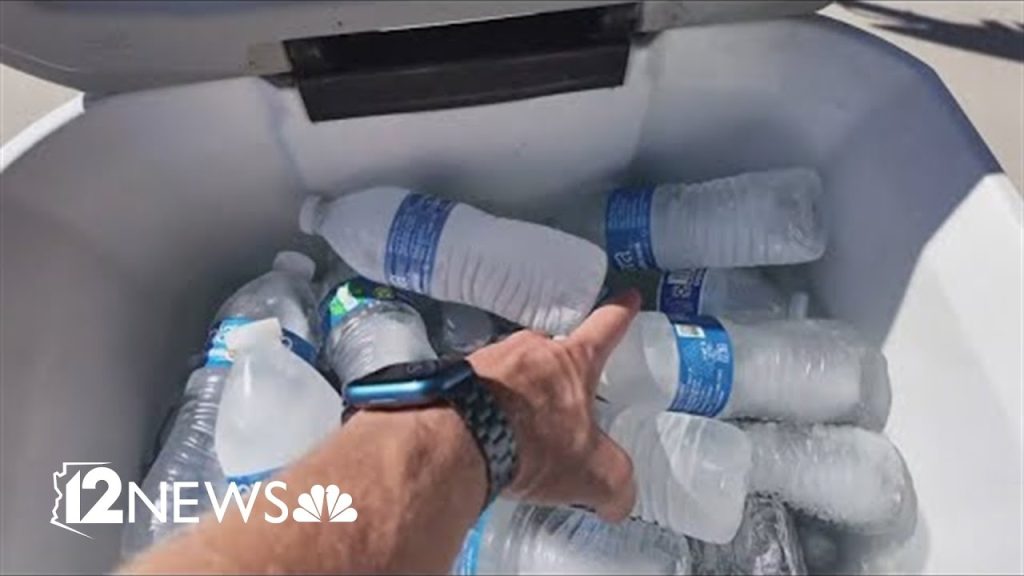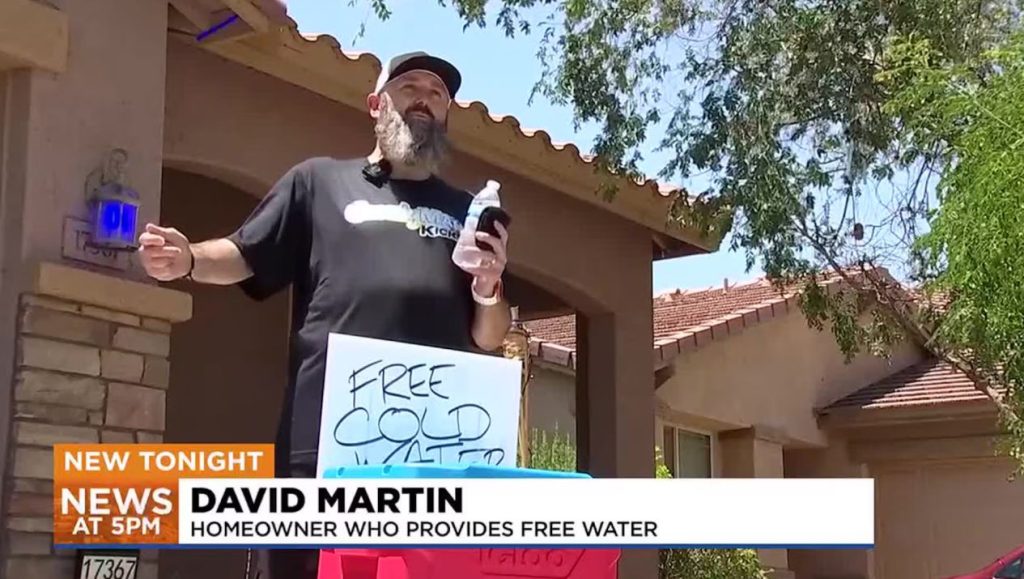In a surprising turn of events, an Arizona homeowner is facing repeated fines for what many see as an act of kindness: offering free bottles of water to those in need. Despite soaring temperatures in the region, this simple gesture has landed him in trouble with local authorities due to alleged city ordinance violations.
An Act of Generosity in the Desert Heat
Arizona is known for its intense summer heat, with temperatures often soaring above 110°F (43°C). Recognizing the dangers of dehydration and heatstroke, one Tucson resident decided to act. He began placing coolers filled with bottled water on his front lawn, encouraging anyone in need—homeless individuals, delivery workers, or neighbors—to take one for free. The homeowner, who has chosen to remain anonymous in most reports, described the initiative as a personal mission to support the vulnerable. “It’s just water,” he said. “No politics, no agenda—just human decency.”

The City’s Response: Repeated Fines Issued
Despite the goodwill behind the effort, the City of Tucson has issued multiple fines against the man, each amounting to $100. According to city officials, the act of leaving water coolers and signage on his lawn constitutes a violation of municipal codes regarding public displays and unauthorized distribution. Officials argue that while the intention is noble, the distribution of food or drink—even water—on residential property without a permit could raise liability and sanitation concerns. They cite the risk of contamination, potential littering, and the lack of oversight as reasons for enforcing the code.
Public Reaction: Outrage and Support
The community’s response has been overwhelmingly supportive of the homeowner. Many locals have voiced their frustration on social media and in public forums, calling the fines “outrageous” and “shameful,” especially during a period of dangerous heat warnings. Some have even joined the cause, offering to help stock the coolers or cover the costs of the fines. Others have started petitions urging the city to reconsider its stance and allow such small-scale charitable efforts without penalty.
“It’s absurd that someone trying to help others is being punished,” said one neighbor. “The city should be encouraging compassion, not penalizing it.”
Legal Gray Area: What the Ordinance Says
City codes regarding residential use, signage, and public distribution of items are often strict to maintain order and safety in neighborhoods. In this case, the homeowner may be in technical violation for using his front lawn as a point of distribution without city approval. However, critics argue that enforcement should consider context. In extreme weather conditions, offering water could be seen not just as a gesture of kindness but as a public health service.
A Larger Conversation on Kindness and Bureaucracy
This incident has sparked a broader conversation about the balance between public policy and community compassion. While local governments have the responsibility to enforce laws, critics argue that such laws should not discourage residents from helping others in simple, life-saving ways.

Conclusion: Rules vs. Humanity
As temperatures continue to rise and the need for humanitarian action grows, many hope the City of Tucson will revisit its policies. For now, the homeowner remains undeterred, continuing to offer water despite the financial penalties. His story serves as a reminder that even small acts of kindness can make a big impact—and sometimes, challenge the system along the way.

















